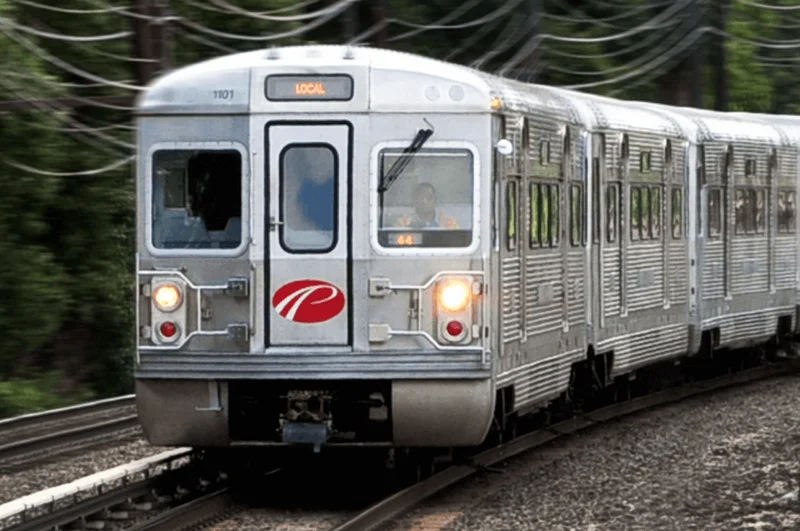So, you were one of the lucky ones this morning. Standing on a cold PATCO platform at 7:45 a.m., staring at a dead screen, feeling that familiar dread creep into your gut. The train ain't coming. Again. The official reason? An "electrical problem." A "power surge." A few "blown fuses."
Give me a break.
This is the kind of sterile, corporate language designed to make a systemic failure sound like a minor hiccup, like someone just forgot to change a lightbulb. But for the thousands of people trying to get to work, to school, to doctor's appointments, it wasn't a hiccup. It was a three-hour black hole that swallowed their morning whole. You can just picture the scene: a sea of faces illuminated by the pale blue light of smartphones, everyone simultaneously texting their boss the same lame excuse that is, for once, completely true. The silence on the platform, usually filled with the rumble of an approaching train, is replaced by a collective, frustrated sigh.
The official story is that a power surge from PSE&G hit PATCO’s Westmont substation and poof, the lights went out. Fuses blew. The entire bi-state artery connecting South Jersey and Philly just… stopped. It took them three hours to replace some fuses and reboot the system. Three hours.
Am I supposed to be impressed? Relieved? Are we really living in a world where a multi-million dollar transit system, the literal lifeline for an entire region, has the same resilience as a vintage Nintendo console? Blow on the cartridge, jiggle the wires, and hope for the best? What kind of Rube Goldberg machine are we running here where there isn't a backup? No redundancy? Just a shrug and a "whelp, guess we'll call the power company."
Our Daily Commute is a Jenga Tower
Let's be real. This isn't just about PATCO. This is about the paper-thin illusion of stability we're all forced to live with. Our entire public infrastructure—our trains, our power grids, our bridges—is like a giant, rickety Jenga tower. Every day, thousands of us carefully place our lives on it, trusting that it won't fall. And every day, some faceless entity pulls another block out from the bottom.
Today, it was a few fuses at the Westmont substation. A tiny, insignificant block. But the whole tower swayed. People were stranded. The solution? "Seek alternative travel options." That’s corporate-speak for "you're on your own, pal." NJ Transit "cross-honored" tickets, which is great, I guess. It’s like telling passengers on the Titanic that their tickets are also good for the lifeboats. It doesn't address the fact that the primary system is sinking.

And this isn't happening in a vacuum. The same reports that mention PATCO’s meltdown casually note that SEPTA riders are also dealing with their own special hell. Canceled trains, skipped stations, insane crowding all because some rail cars got pulled for federal inspections after one of them caught fire. It’s a bad idea to rely on these systems. No, "bad" doesn't cover it—it's a calculated risk we're all forced to take every single day, with the odds getting worse.
It’s the same story everywhere you look. The system is brittle. It’s old, underfunded, and held together with press releases and wishful thinking. The people in charge are just hoping they can get through their shift before another block gets pulled and the whole damn thing comes crashing down. And when it does, they'll act surprised and promise a full investigation. Offcourse they will.
We’re just expected to absorb these failures as part of the daily grind. The morning commute is no longer a simple trip from A to B; it's an adventure game where you might have to suddenly find a new route, pay for a $70 Uber, or just give up and go home. And honestly, some days...
The Empty Promise of "Minor Delays"
By 10:30 a.m., the official channels declared victory. PATCO service restored after Wednesday morning power outage, they chirped. "Riders should expect minor delays as trains return to normal."
"Minor delays." That’s the final insult, isn't it? After three hours of chaos, after thousands of people had their entire workday torpedoed, the inconvenience is neatly packaged and minimized as a "minor delay." It’s a phrase that means absolutely nothing and everything at the same time. It’s the official admission that the system is broken, but not broken enough for anyone to actually have to do anything meaningful about it.
What does "normal" even mean anymore? Does it mean a system that runs smoothly, or does it mean a system that’s perpetually one blown fuse away from total collapse? When they say service is back to "normal," are they talking about the service we want, or the service we've been conditioned to accept? Then again, maybe I'm the crazy one for expecting a train to... you know, run on time.
They fixed the fuses. Great. But what about the surge from the power company that caused it? Is PSE&G just going to send a gift basket and an apology note? Is anyone asking the hard questions about why the grid is so unstable that it can knock a major transit line offline during peak rush hour? Or are we just supposed to cross our fingers and hope it doesn't happen again tomorrow?
Welcome to the Fragile Future
Here's the ugly truth: this wasn't an anomaly. This is the new normal. We're living on borrowed time, riding on borrowed infrastructure. Wednesday’s PATCO shutdown wasn't a freak accident; it was a preview. It was a glimpse into a future where the things we depend on are increasingly, terrifyingly fragile. And the people in charge will keep telling us it's all under control, right up until the moment it isn't. So get used to the dead screens and the apologetic announcements. It seems like that's all we're going to get.
